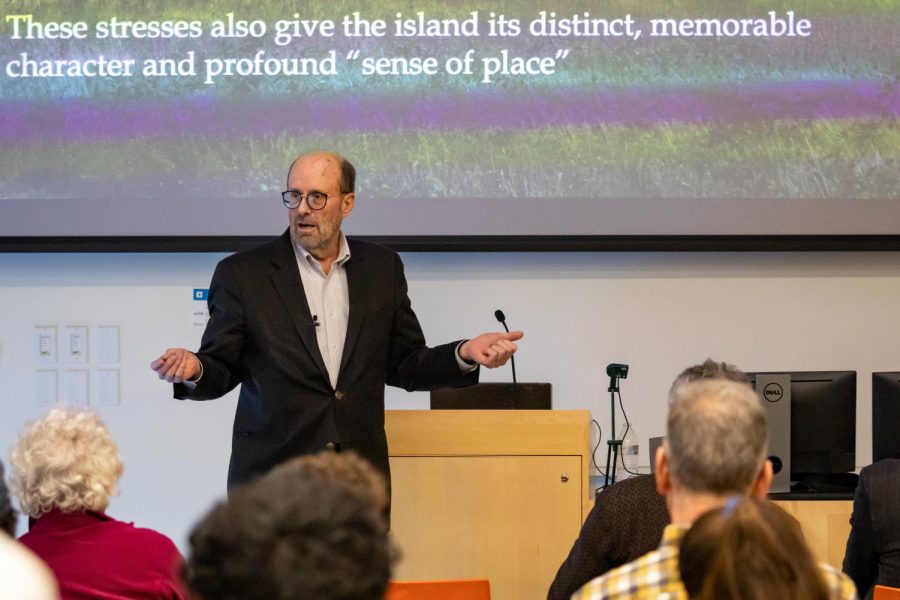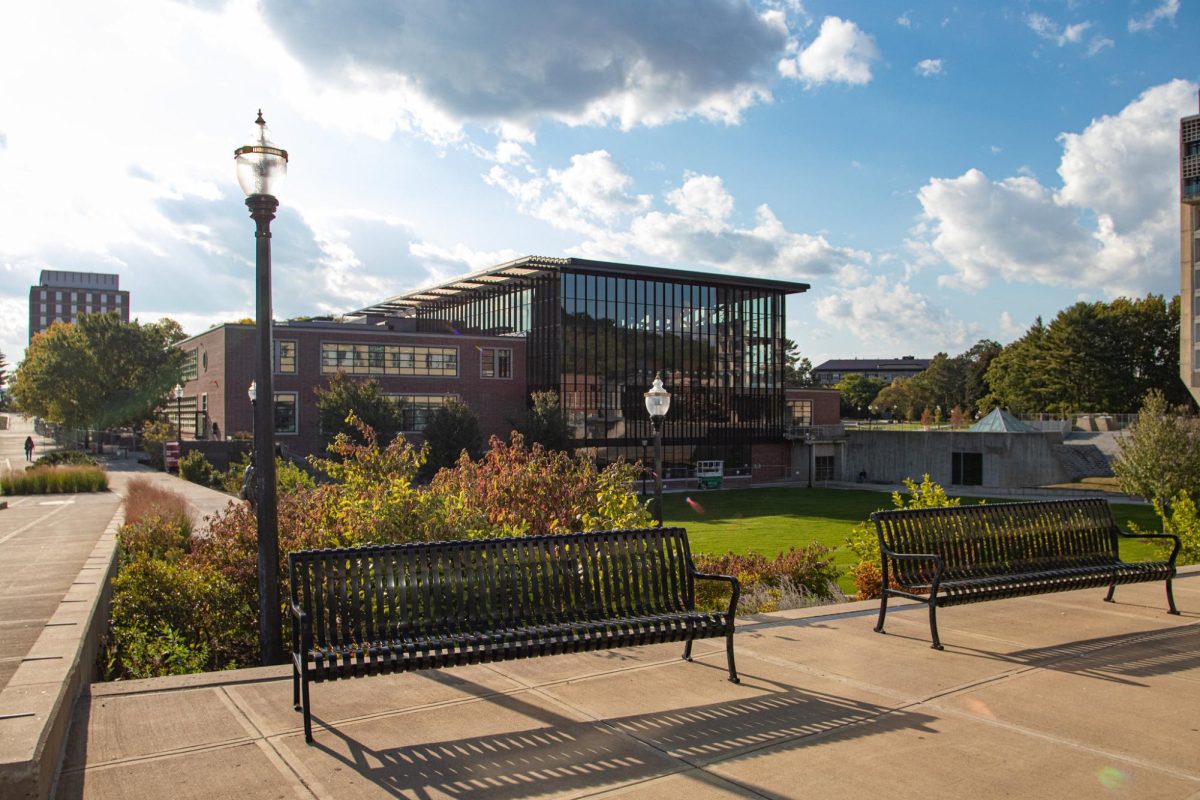Over the years, Cape Cod changed from a diverse landscape with plants native to the area to a landscape filled with generic trees, shrubs, and turf. On Thursday, March 30, landscape architect and retired University of Massachusetts professor Jack Ahern spoke on his plan to revitalize Cape Cod sustainability.
Ahern spoke mainly on ideas from his most recent book: “Design With Nature on Cape Cod and the Islands.” He explained that Cape Cod “is a storm tossed, beat up landscape,” with a fragile biodiversity of native plants that are essential to protecting wildlife and promoting sustainability.
However, Ahern explained that those currently living in Cape Cod might not have agency in protecting that natural landscape, as they have to work with unsustainable horticultural practices such as turf, green unnatural grass and fertilizers.
Ahern offered a variety of alternatives to practice horticulture in a way that is in line with Cape Cod’s geography. He advocated for plant communities, in which plants near each other work as teams to manage stability with one another. He explains that we must practice “meeting nature halfway.”
“Ecological landscape design is what I am advocating for. It reinforces local landscape character. The landscape character is defined by the plant communities that are there,” Ahern said. “So if you want to reinforce the character, of course there is an architectural component to that … but the plants have a lot to do with it.”
Ahern said that many people do not like the look of natural landscapes, because they have a tendency to look unorganized. Some may like a clean cut lawn or turf instead of naturally growing plants. To combat this, Ahern utilized the ideas of landscape design to show naturalization in an orderly landscape context.
When landscape designers consider plants that align with the geography they are set in, it benefits the area. According to Ahern, plants adapt with each other as a team to manage stability with each other with minimal care and no unsustainable horticulture practices.
“Management, not maintenance. Maintenance refers to the status quo, keeping it the same,” Ahern said. “Management is more accepting dynamics of natural systems and working with them.”
Alex Lambert, a sophomore landscape architecture major, was excited about native planting methods, especially in relation to Cape Cod, where he is from. He thought that the idea of curating an individual landscape was very important and significant.
“I think the cultural aspect of this entire subject is the most interesting to me,” Lambert said. “Really at the core of it, it’s about shifting the cultural mindset towards garnering more appreciation to your own area.”
Ahern weighed the costs and benefits of changing familiar construction practices for a better end result. He presented six different plant communities that are more beneficial to Cape Cod’s geography than generic landscapes: dunes, sandplain grasslands or heathlands, coastal maritime forests, pitch pine scrub oak forests, pine oak forest and coastal hardwood forests.
Christian Guerra, a sophomore landscape architecture and sustainable development major said that Aherns speech was inspiring for the landscape architecture department, and he believes these topics will continue to exist for the future of landscape design.
“I felt pretty emotionally invested during this, Jack is a professor with a lot of accolades in our program, and I would say we have a pretty close-knit major,” Guerra said. “The criticism he proposes towards the sort of milk-toast suburban landscape I think is probably very influential because it’s going to persist throughout the years.”
Eve Neumann can be reached at [email protected].



















